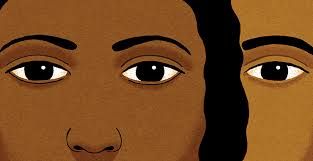Fourth Sunday of Easter
“… I know mine, and mine know me, just as the Father knows me and I know the Father.” Jn. 10: 11 – 18
The United Nations recently issued a report that is stunning and scary and shameful. It reads as follows:
“More than one in three women experience sexual or physical violence in their lifetimes. One in ten females under the age of twenty is subjected to ‘forced sexual acts’. In more than thirty countries, it is not illegal for men to beat their wives. In the United States, eighty-three per cent of girls between twelve and sixteen confront sexual harassment in school.”
The report concludes with this statement: “The rate and variety of violence regularly exacted upon half of humankind is ‘alarmingly high.’”
In stark contrast to this single example of terrible viciousness, coupled with worldwide accounts of war and bombings and endless shootings, today’s gospel presents us with the image of Jesus as the Good Shepherd.
John’s gospel uses a number of images to help us understand who Jesus is and what kind of relationship he can enter into with each of us. For example, Jesus is presented as living water, the light of the world, the bread of life, and the gate through which people can find eternal life.
Today John draws another picture for us:
The Good Shepherd … the shepherd who will not abandon his flock, the shepherd who will always be there to protect his flock from harm, the shepherd who “knows” his sheep so intimately that he can call each by name – and who loves them so dearly he “lays down his life for his sheep.”
Notice that the emphasis in each of these strong images is always gentleness, familiarity and intimate connection – the very opposite of what so many people around the globe, especially women, experience in their everyday life.
So, these questions now become obvious:
If Jesus is the Good Shepherd, if his love for each of us is so intimate and endearing, then what about all the violence that surrounds us? What about the endless wars and killing and terrible ferocity so many have to endure, especially women?
Where do we find the Good Shepherd in today’s world?
The earliest Christians clearly understood this challenge. Their answer to these questions was:
We are the ones who are to make the Good Shepherd a reality by our embrace of non-violence. We are the ones who must become the grain of wheat that embeds ourselves into the soil of society and grows into a movement that insists upon protecting the vulnerable. We are the ones who must become the voice of protest against those who blindly want to rush into conflict. We are the ones who must always stand up for those who are weak and defenseless.
And the earliest Christians believed this because they witnessed it first-hand in Jesus himself. He showed it to them by his treatment of the poorest of all in those days, the women. He dramatized it by making blind people see, making the skin of leprous people smooth, making sick people well, hungry people full, and sinful people forgiven.
These earliest Christians believed all this because Jesus taught it to them by his words. He shared it with them in the meals he ate with them, especially the Last Meal before he died. And he revealed it to them by depicting God’s ultimate love and partnership with a crucified body – the total gift of himself on behalf of all.
The earliest Christians knew in their hearts that the single most important message Jesus gave them through his Easter resurrection is the understanding that the staff of the Good Shepherd was now passed on to them.
They were to become the Good Shepherds to all.
They were to become different people, transformed people, courageous people, bold people, impassioned people.
They were to become people living in communion with the same God who told them: “I know mine, and mine know me, just as the Father knows me, and I know the Father.”
They were now to understand in a way they never did before that every single person – even the slaves, even those who were not of their faith, even women – were passionately loved, full and complete children of God.
Now, that same shepherd’s staff, that same needed transformation has been passed on to each one of us – to you and me.
Admittedly, it’s a heavy duty, a serious obligation. Because it means that our example, our way of treating one another will tell the world what it truly means to be a “Christian,” a follower of Jesus, a Good Shepherd.
Perhaps the recently deceased Rev. Billy Graham said it best when he wrote:
“We are the Bibles the world is reading;
We are the creeds the world is needing;
We are the sermons the world is heeding.”
And, in the words of Dr. Martin Luther King, Jr.:
“I simply taught, preached, and wrote God’s Word; otherwise I did nothing.”
Now it’s our turn to do that same kind of “nothing.”
Ted Wolgamot, Psy.D.
11809194.1
4/2018




